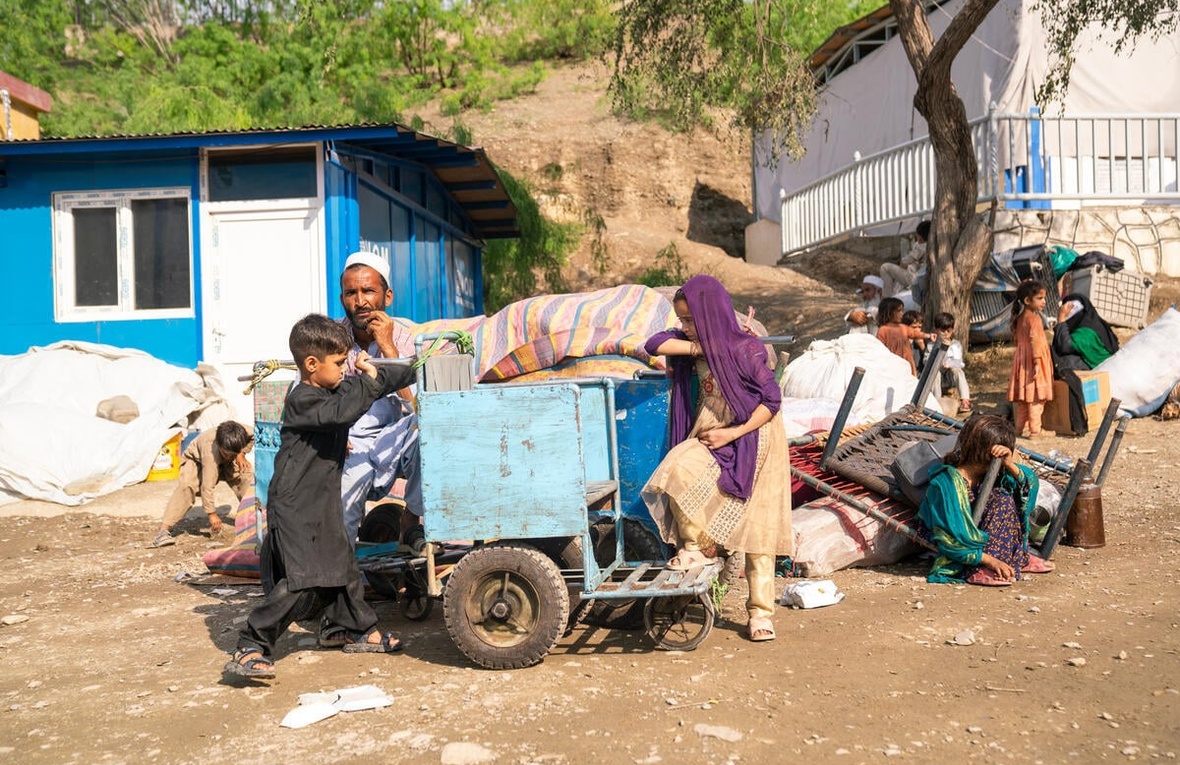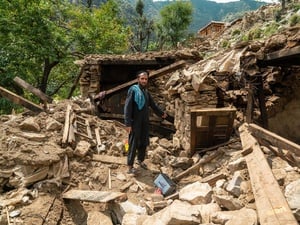As Afghans are forced to return, UNHCR seeks support for humanitarian crisis
As Afghans are forced to return, UNHCR seeks support for humanitarian crisis

After returning from Pakistan, an exhausted Afghan family sit beside their belongings at the Torkham border crossing.
GENEVA – An even deeper humanitarian crisis is looming in Afghanistan as tens of thousands of Afghans are being forced to return from neighbouring countries, UNHCR, the UN Refugee Agency, warned today as it urgently seeks $71 million to assist those arriving home in desperate conditions.
In April, more than 251,000 Afghans have returned in adverse circumstances from Iran and Pakistan, including over 96,000 who were deported. UNHCR continues to advocate with the Governments of Iran and Pakistan that returns to Afghanistan must be voluntary, safe and dignified. Forcing or putting pressure on Afghans to return is unsustainable and could destabilize the region.
While UNHCR recognizes the many challenges – including economic pressures – facing these countries that have hosted millions of Afghans for decades, we have also consistently shared our concerns that regardless of their legal status, people forced to return to Afghanistan may encounter serious protection risks.
This is especially true for Afghan women and girls who face increasing restrictions in terms of access to employment, education and freedom of movement in Afghanistan. Among other profiles, ethnic and religious minority groups, human rights activists, and journalists could also be at risk upon their return. These concerns are compounded by acute humanitarian needs inside Afghanistan, rising unemployment rates, as well as natural disasters and extreme weather incidents.
Since 2023, more than 3.4 million Afghans have returned or been deported from Iran and Pakistan, including over 1.5 million in 2024 alone. Such mass returns have strained the capacity of many provinces in Afghanistan and exacerbated the risk of further internal displacement. There has also been new displacement into Iran and Pakistan, and heightened risks of onward movements towards Europe. In 2024, Afghans became the largest group (41 per cent) of irregular arrivals from the Asia-Pacific region into Europe.
UNHCR is working with partners like UNDP and IOM to support the growing number of returnees in Afghanistan. Amid the current funding uncertainties, we need $71 million to respond to this crisis across the region over a nine-month period.
The additional funds will allow our teams to provide crucial financial assistance for returnees to cover urgent needs, travel, access to services, livelihoods, and reintegration activities – with an emphasis on reaching women and girls. We will also enhance our reception capacity and centres to help returnees address protection needs and receive critical information.
In Iran and Pakistan, we will scale up emergency support through community outreach, protection monitoring, and psychosocial and legal support. Communication with refugees will be strengthened through hotlines and SMS in local languages to provide timely information about services. Border monitoring will be reinforced. Specialized and tailored services are planned for the most vulnerable groups.
For more information on this topic, please contact:
- In Geneva, Babar Baloch, [email protected], +41 79 513 9549
- In Islamabad, Qaiser Khan Afridi, [email protected]. +92 300 501 8696
- In Bangkok (Regional), Radhika Bhatnagar, [email protected], +66 62 310 3285
- In Kabul, Saorlaith Ni Bhroin, [email protected], +93 703465623









